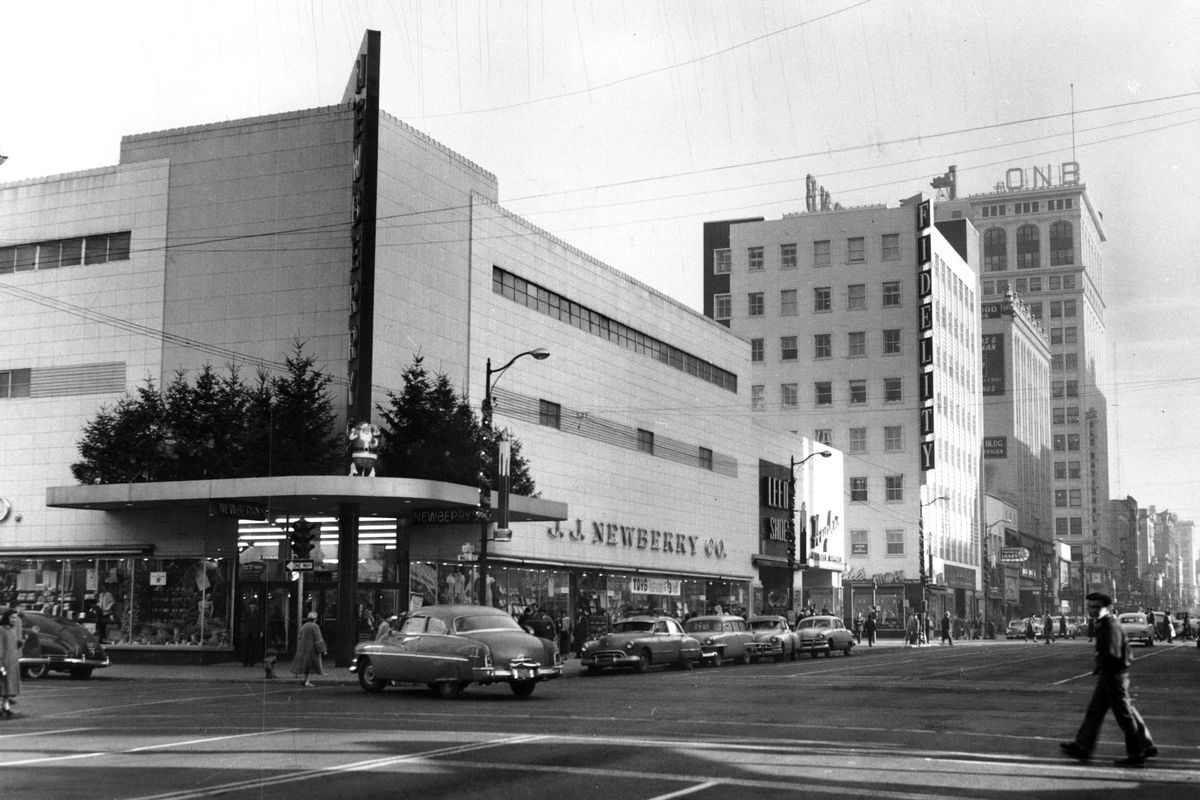Then and Now: J.J. Newberry store

By the late 1800s, America entrepreneurs created a revolution in retail business by appealing to the thriftiness of the shopper and offering a wide variety of merchandise to save customers time. This was the origin of the dime store.
John Josiah Newberry, born in 1877, worked for the railroad as a teenager, then at a department store, then for Samuel Kress’ stores for 10 years before opening his first store in 1911 in Stroudsburg, Pennsylvania. With his brothers in management, the Newberry chain grew quickly. In 1928, the Newberry company took over Britt’s Department Store, a chain founded in the Northwest in the early 1900s. The Britt’s in Spokane was rebranded as J.J. Newberry in 1930, filling the Wolverton building at Wall Street and Riverside Avenue.
The formula was low prices, literally only nickels and dimes, for dry goods like razor blades, bobby pins and shoelaces sold from countertop bins. There were toys and candy for children and fabric and craft items for housewives. Similar to Woolworths, Kress and others, there was a lunch counter with simple fare like grilled cheese sandwiches and soups for mere pocket change. A 1938 lunch counter menu offered fried chicken, mashed potatoes, peas, cole slaw and a roll for 25 cents.
Many stores also sold small pets, like goldfish and hamsters, and pet supplies. In the 1930s, the Newberry store often had a piano player demonstrating sheet music for sale.
The Wolverton building was torn down in 1946 and a new Newberry store took up more than half of the Riverside block. Around 1950, the buildings on the eastern end of the block were torn down and the Newberry store stretched its presence to Howard Street, leaving space for Leed Shoes and Hughes Apparel.
The dime stores, whose popularity peaked in the post-World War II period, declined through the 1960s and 1970s as suburban shopping centers and malls proliferated. When J.J. Newberry died in 1954, the chain had 475 stores. The U-City Newberry closed in 1991 and the downtown store closed in 1995. The dime store concept splintered into convenience stores, drugstores, and others. Some, like Kmart and Walmart, became big-box retailers. The last Newberry store, in Portland, closed in 2001.